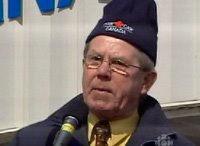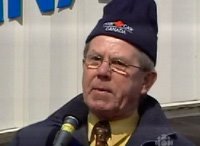The House of Assembly will soon turn to debating the only major piece of legislation on the current agenda: amendments to the Newfoundland and Labrador Hydro act. In light of the imminent passage of that legislation and recent events during the Hebron fiasco, it is timely to reprint an article originally posted last October on Danny Williams' vision of a state-owned oil and gas company in Newfoundland and Labrador.
Note: The Antle story is no longer available online owing in large measure to the abysmal website maintained by
The Telegram.
----------------------
When Danny Williams released his
Blue Book, it appeared to contain a contradiction. Thanks to Rob Antle's story in yesterday's
Telegram, the contradiction is now more apparent.
The first chapter of the
Blue Book copied almost word for word the Wells' administration Strategic Economic Plan (SEP). The SEP aimed to correct two fundamental weaknesses in the Newfoundland and Labrador economy, namely excessive dependence on a handful of major resource industries on the one hand and a shortage of local, accessible capital to support economic activity on the other. Since Confederation, the latter weakness had been addressed by federal transfer payments which had resulted in another form of dependence.
In some respects, these twin dependencies were historic issues. The pre-Confederation economy depended on the fishery, forestry and mining with the former being prominent. Local manufacturing was dependent as well, although before 1949, it relied on protectionist tariffs to keep Canadian manufactured goods out. Such was its level of dependence that within three months of Confederation, most of those manufacturing enterprises collapsed in the face of more robust and efficient business elsewhere.
The SEP identified entrepreneurship - the growth and development of the private sector - as the mechanism by which the Newfoundland and Labrador economy could be strengthened and the twin dependencies eliminated.
By contrast, the second chapter of William's
Blue Book dusted off industrial development policies from the 1970s and 1980s with its focus on oil and gas as the means of generating cash for the provincial government. The Peckford administration viewed oil and gas as the sole means of financial salvation for both the Newfoundland government and for its society.
Peckford passed legislation to create the Petroleum Corporation of Newfoundland and Labrador, with its legislated share of each offshore development. Coupled with that, the legislation mandated that companies involved in the local offshore would be local companies. Through these legislated requirements the province would develop an oil industry that would ensure, in the words of both Peckford then and Williams now, that maximum benefits would flow locally from local resources.
The fundamental contradiction between these two approaches is that while the SEP is based on private sector entrepreneurship and increasing international trade for local products, the Peckford and now Williams approach is focused on state ownership of industry and on local markets.
A genuine contradiction would exist if the
Blue Book embraced the philosophies underpinning the Wells and Peckford approaches. It does not. Rather, Williams appears to be focused on control as an end in and of itself. For example, take this phrase dealing with prospective hydro development: "I'’d like to see us own the lion'’s share of the Lower Churchill...". The provincial government already owns the "lion's share" and can claim rents from electricity as a matter of owning it.
What Williams is talking about here is owning and controlling the company which generates the electricity.
Consider as well, the rest of that section of Antle's story: natural gas should be brought ashore in Newfoundland and Labrador by pipeline so that "we have control of the pipeline so that it'’s not being compressed or liquefied and going in a God damn boat and going on down the coast somewhere."
In the absence of any demand for natural gas within the province or any demonstrable advantage to converting the province to gas, an entrepreneurial approach would support selling it to someone who wants it. Better to ship it to the United States in whatever way produces the best price than to spend money bringing it to a place that has no use for it. Revenue from that sale can support public services like health care. Privately owned local companies can own the ships that move the gas to market. Expertise in gas production and shipping, potentially using new technology, can give the local private sector a competitive advantage such that it can gain even more business around the globe than can be obtained purely within Newfoundland and Labrador.
A government dedicated to developing the private sector would create a climate in which local companies can exploit local resources thereby generating wealth. Government's share of that wealth through economic rents and other taxation would give sufficient revenue to deliver government programs and services.
In the Williams approach, the state - the provincial government - is merely a corporate entity with all the tools necessary to achieve local, i.e. provincial government, control.
The struggle for the Williams government is the struggle for control. He acknowledges that his supposed opponents are larger than government: "if you go up against Hydro Quebec, if you go up against Inco, if you go up against ExxonMobil, they'’re a lot bigger than our government is. That'’s the grim reality of all of this." His next comments identify the solution - build the hydro corporation such that it can "take on" the biggest out there.
The result of the Williams approach is difficult to predict. Certainly, in the short run, he may achieve considerable political success. He may be able to turn the energy corporation into a Mother Hen that will wrest a portion of economic developments for itself and then distribute these among local companies. The resulting jobs may carry with them votes.
In the medium- to long- term, though, the Williams approach cannot address the chronic, historic problems in the local economy. Over the past 25 years, Western economies have disposed of state-owned enterprises since they are notoriously unable to produce wealth as effectively and efficiently as the private sector. The ones that survive, such as Quebec's hydro corporation may be models for the Premier, but they are models from the past. They are models which are limited to very specific and primarily local activities. In short, they are expensive and ultimately wasteful of what in Newfoundland and Labrador are scarce cash resources.
The Williams Mother Hen approach - if that indeed is what emerges - will simply promote
dependence of local companies on state subsidies, either directly or indirectly.
The Premier's plan may not succeed simply because the hydro corporation is actually not the entity Premier Williams describes. Newfoundland and Labrador Hydro remains a government department in all but name and is almost the antithesis of a private sector corporation in which the board of directors would have the authority to run the company and set its own lines of business.
On the face of it this is obvious: the impetus to change hydro to an energy corporation did not come from its own board, complete with a business plan. It is entirely the plan of this particular administration. The board will not resist. The Premier alone holds the de facto power to appoint or remove directors and he has shown repeatedly his willingness to replace dissenters with his own personal retinue.
As such, the new energy corporation will likely be quickly recognized as an anomaly in the developed world and surely one which violates the Organization of Economic Co-operation and Development's guidelines for the governance of state-owned enterprises. Even if one leaves aside for the moment the nagging and very serious question of how the new energy corporation will find the cash to support the Premier's ambitions, one can readily see how companies such as Chevron may be very reluctant to enter into any arrangements that would see its long awaited return on investment siphoned off into a provincially owned company with no experience in oil and gas and no capital at risk. These companies are not Fishery Products International.
International companies may well become increasingly reluctant to invest in this province as the Williams' approach becomes better understood. International capital seeks stability and predictability as well as a fair and transparent regulatory regime. In the case of the offshore, it appears from the Premier's interview yesterday and his previous comments on the offshore board that he intends to change the rules as he sees fit, when he sees fit.
Premier Williams may succeed in creating some measure of the control that he finds satisfying personally. On another level, however, all he may succeed in doing is ensuring the chronic problems in the Newfoundland and Labrador economy continue into the future, at best unaltered and at worst supported by the very mechanisms of control which he is seeking.
In reforming the hydro corporation, he may well be using the elements of plans laid by previous administrations to cement in place the very circumstance they sought to change.







